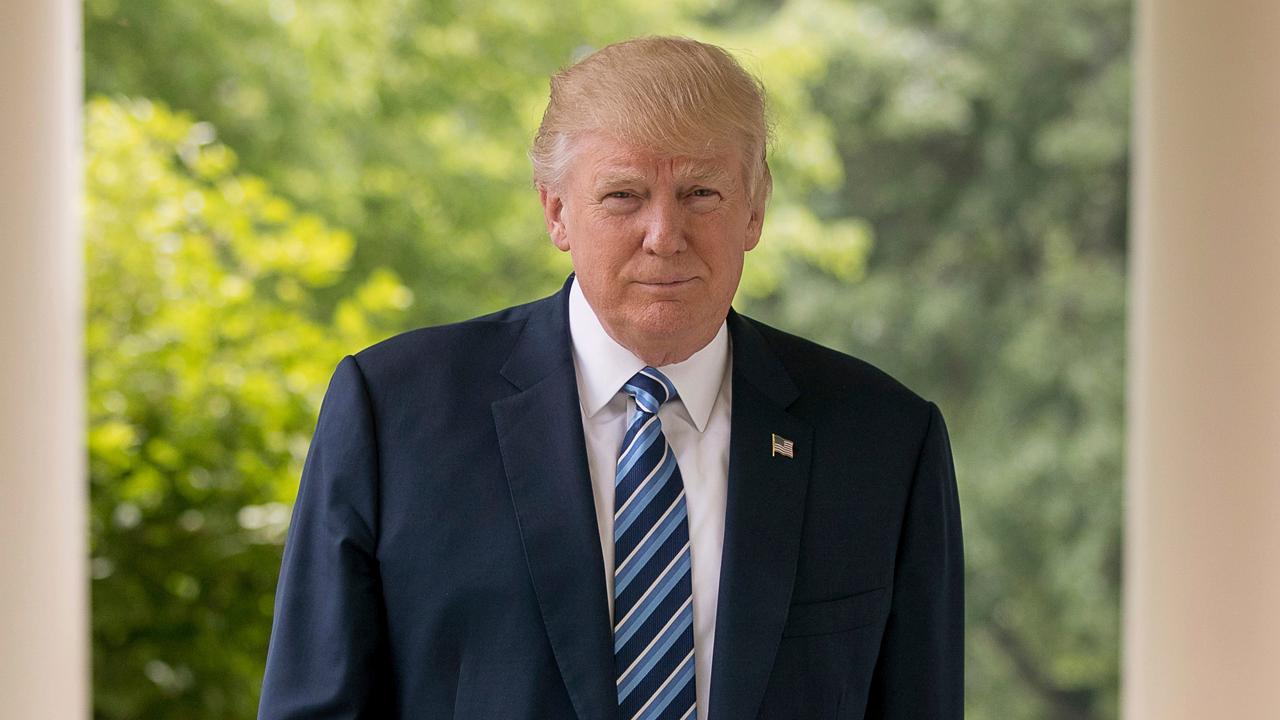Mexico not panicking over Trump's NAFTA threats
President Trump stirred the NAFTA pot yet again earlier this week during his rally in Phoenix, Arizona. “We'll end up probably terminating NAFTA at some point,” he said to supporters and a throng of protestors.
However, south of the border, Mexico’s business community is taking Trump’s latest threats in stride. "Congress won't let him,” said Mauricio Villarreal, a financial analyst who works in private equity.
In fact, Villarreal, who works from his modern, mirrored office towers that surround the Angel of Independence monument on Reforma Avenue in the center of Mexico City, is banking on the country’s future. "I'm optimistic. The 'Trump effect' is dissipating," he explains adding that he and other business people have some concerns about Mexico's overall economic health but are still confident about Mexico's prospects in coming decades. "I see that for people here, it’s business as usual," he said.
Supporting Villarreal’s views, the money trail. "Even in the face of Trump’s explicit threats to NAFTA in his Phoenix speech, the peso barely moved,” Shannon O'Neil, a Mexico expert from the Council on Foreign Relations in New York, told FOX Business. She also notes that the currency has recovered since the start of the year. “All signs [show] that the initial panic of Trump's election, and the potential end of NAFTA has passed. Most expect that NAFTA's renegotiation will largely follow along the lines of the issues already negotiated within Trans-Pacific Partnership," a trade-deal that Trump scrapped at the start of his term.
With the peso holding its own, foreign money is flowing into the country. Mexico received $15.6 billion in Foreign Direct investment between January and June of 2017. This marks an 8.8% increase over the amount recorded in the first half of 2016. To boot, Mexico companies in the U.S. accounted for over half the foreign direct investment Mexico received, according to figures from the Ministry of Economy.
Still, Trump's chief negotiator, United States Trade Representative Robert Lighthizer, parroted the same views as his boss as talks began. “We cannot ignore the huge trade deficits, the lost manufacturing jobs, the businesses that have closed or moved because of incentives -- intended or not -- in the current agreement,” he said.
The U.S. does currently have a $74 billion annual trade deficit with Mexico in the area of cars and car parts, but there is little consensus that tweaks to NAFTA are the best solution for addressing this imbalance. The American Automotive Policy Council, a trade group that represents auto-makers such as Ford (NYSE:F), General Motors (NYSE:GM), and Fiat Chrysler (NYSE:FACU) has already publicly warned the Trump administration against rule changes that could disrupt the complicated cross-border supply chain networks that connect the three NAFTA partners. Mexican officials have repeatedly reminded the Trump administration that 40% of the goods Mexico currently exports to the U.S. are originally produced in the U.S.
Andrew Selee, the author of an upcoming book on Mexico-US relations, told FOX Business, "I think President Trump has gradually realized that his options for what he can actually do are much more constrained. Change is gradual in policy."
So a “gradual” change is what the Trump team may end up settling for in a new NAFTA.
"Even if the agreement stays 95% the same, he will claim victory. If he is able to walk away with an agreement that’s been tinkered with and claim victory that will enable him to save face and claim he has won and cut a good deal for American workers," Tony Payan, a Political Science professor and expert on U.S.-Mexico relations from the Baker Center for Public Policy at Rice University, told FOX Business.
As negotiations continue, officials from Mexico and Canada have argued that the best way to ameliorate the U.S. trade deficit is to expand exports rather than diminishing existing commercial ties.
The White House did not respond to a request for comment.




















